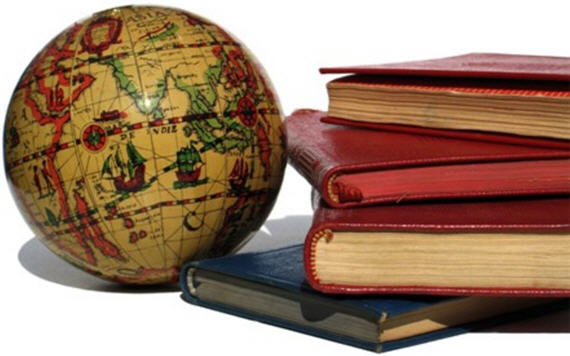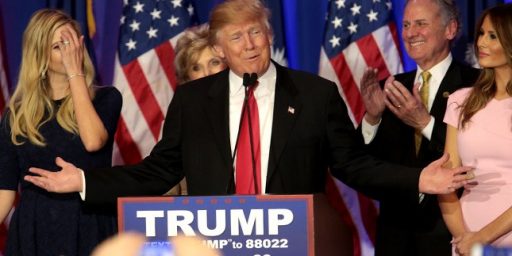I Get Emails About History
I received an email today, one of the many PR emails I get per day as a consequence of being an OTB author. This one is for a book about what the Founders would think about modern governance, and begins with this paragraph:
Washington, Jefferson and Madison knew exactly what they were doing when they drafted the Constitution and the Democrats in power today are losing sight of their knowledge, instincts and brilliance.
I think I’ll pass on learning any historical insights from this book. After all, George Washington presided over the Constitution, but did not participate in the substantive debates. He did, with vigor, support Virginia’s ratification of the Constitution, but he didn’t have a lot of involvement in “drafting” it – preferring instead to work to keep the Convention civil and constructive. Thomas Jefferson had no part in drafting the Constitution, as he was busy working in Paris as the Ambassador to France. James Madison did play a major role, but lest we forget, there were 55 delegates to the Constitutional Convention. Excepting Washington, nearly all of them played a substantive role, and there were quite a few areas of disagreement. Indeed, several delegates refused to sign the Constitution and later spoke out against its ratification.
Indeed, as my colleague Steven Taylor has pointed out here on numerous occasions, many of the arguments laid out for Constitutional authority by Tea Party conservatives actually echo the arguments of the Anti-Federalists and later the Democratic-Republicans, led by Thomas Jefferson — who was, in fact, quite critical about the scope of Federal power granted by the Constitution.
I realize that several on this site, including myself, have stated this point on multiple occasions, but it bears repeating. The Constitution is the product of compromise. The resulting document is very different from what say, Madison had planned going in, which in turn was quite different from what Hamilton had going in. After the ratification of the Constitution, there began arguments that continue to this very day about the scope of Federal and State power.
I don’t like putting my thoughts into the mouths of dead men, but if I had to guess based on their contemporary writings, I would guess that Hamilton would be pretty comfortable with the scope of Federal authority today (and would probably be surprised that states still have as much power as they do), while Thomas Jefferson would probably be aghast and setting up shop with the libertarians.






You are pitifully uninformed.
Don’t you know that Jefferson was in on the daily Constitutional conference calls? He had plenty of minutes left on his plan, and the international rates weren’t that expensive.
Do some research next time.
Thomas Jefferson setting up shop with libertarians? Not likely. While suspicious of concentrated state power, his distrust of mercantile corporatism, plus his cosmopolitanism, and general liberal outlook might make him a closer fit to the wiggy-er, anarchistic left than the contemporary authoritarian and rather close-minded movement that gets called libertarian these days.